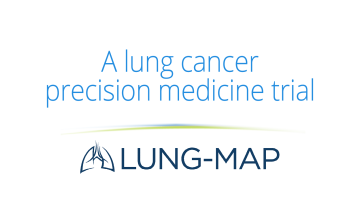SWOG Leaders Strategize in the Windy City
I'm just back from Chicago, where SWOG leadership, including committee chairs, executive officers, key statisticians, and some senior staff, assembled for a day-and-a-half strategic planning retreat.
My colleagues’ high level of enthusiasm and engagement was exhilarating, and I believe most of us left feeling energized about SWOG and our work ahead!
The retreat gathered input from across the group, but particularly prominent in our discussions were the voices of our group-chairs-elect Drs. Dawn Hershman and Primo Lara. They’ll continue to work closely with me going forward, providing critical input in setting goals and making decisions as we update our 2019 strategic plan.
The sessions were led by a facilitator from the firm Bridgeport Consulting, and she did a remarkable job of guiding, recording, and summarizing the discussion. She also laid significant groundwork before the event, holding initial conversations with fifteen SWOG leaders to sketch out the current landscape and ensure a shared base of understanding about where the group stands.
The 60 or so of us who convened in Chicago reviewed the group’s 2019 – 2024 strategic plan (member-only link), assessed progress made and challenges remaining, and identified emerging themes and priorities. We started preliminary groundwork for the next NCTN grant, probably coming out this fall.
The five overriding goals, or “pillars,” that have provided the structure for our strategic plan remain intact, but we are reassessing them and revisiting tactics in the context of the upcoming NCTN and NCORP grant cycles.
Those five original goals were and are:
- ensuring pre-eminent scientific leadership
- fostering innovation, collaboration, and team science
- leading best-in-class efforts in engagement, training, and mentorship
- developing novel approaches to strategic partnering
and - using resources effectively and efficiently
An important goal that has become more central in the years since we developed our strategic plan is enhancing diversity, equity, and inclusion (DEI) throughout the group and in our trials. In discussing the best way of recognizing this heightened priority in an updated strategic plan, we agreed that DEI, rather than being identified as an additional pillar, is really a cross-cutting component, and should be integrated within all of the others.
A key imperative that colors all strategies and tactics we discussed is the need to increase patient enrollment to our clinical trials, while ensuring we don’t do this at the expense of scientific impact.
Two primary strategies in achieving this will be rebalancing our trial portfolio to increase the number of pragmatic, streamlined protocols that are easier to open, conduct, and enroll to (a la S2302 Pragmatica-Lung), and making our trials more patient- and even site-centric, the former goal which recognizes the centrality of patient advocates in trial selection and design and incorporates some of the tactics adopted to decentralize trials during the COVID-19 pandemic.
Themes of collaboration – across committees and across NCTN groups -- engagement, and organizational efficiency were also prominent in the discussion, as was a desire to expand opportunities for translational medicine.
I’ll say more about the outcomes of our retreat in the coming months, but I want to close by implementing one of the many recommendations to come out of the Chicago retreat: to briefly highlight a SWOG “trial of the week” in each Friday’s Front Line. While I like informing my readers, we also felt it is important for committee chairs to know what their counterparts are doing.
_____________________________________________________
Trial of the Week
S1608: Randomized Phase II Trial in Early Relapsing or Refractory Follicular Lymphoma
Here’s a trial that is about three-fourths of the way to the finish line but needs to complete the course at a faster pace. It was activated in summer 2017 and has enrolled 73 of its targeted 95 patients.
This randomized phase II compares lenalidomide obinutuzumab to chemoimmunotherapy in patients with grade I – IIIa follicular lymphoma who have relapsed within two years of completing chemoimmunotherapy that included bendamustine or CHOP plus an anti-CD20 antibody.
The study has the potential to identify the optimal induction regimen for this population, and it includes laboratory assays to characterize the molecular biology of early relapsing follicular lymphoma.
A third arm (TGR-1202 + obinutuzumab) was recently closed, and S1608 is now a two-arm study.
It’s urgent we complete this trial soon. If it’s not open at your site, please consider opening it. If you have it open, please remind your staff about it and ask about potential candidates for enrollment. Send your questions to S1608question@swog.org. The study chair is Paul Michael Barr, MD, of the University of Rochester.
Learn more on the SWOG S1608 page or the CTSU S1608 page.
Other Recent Stories



